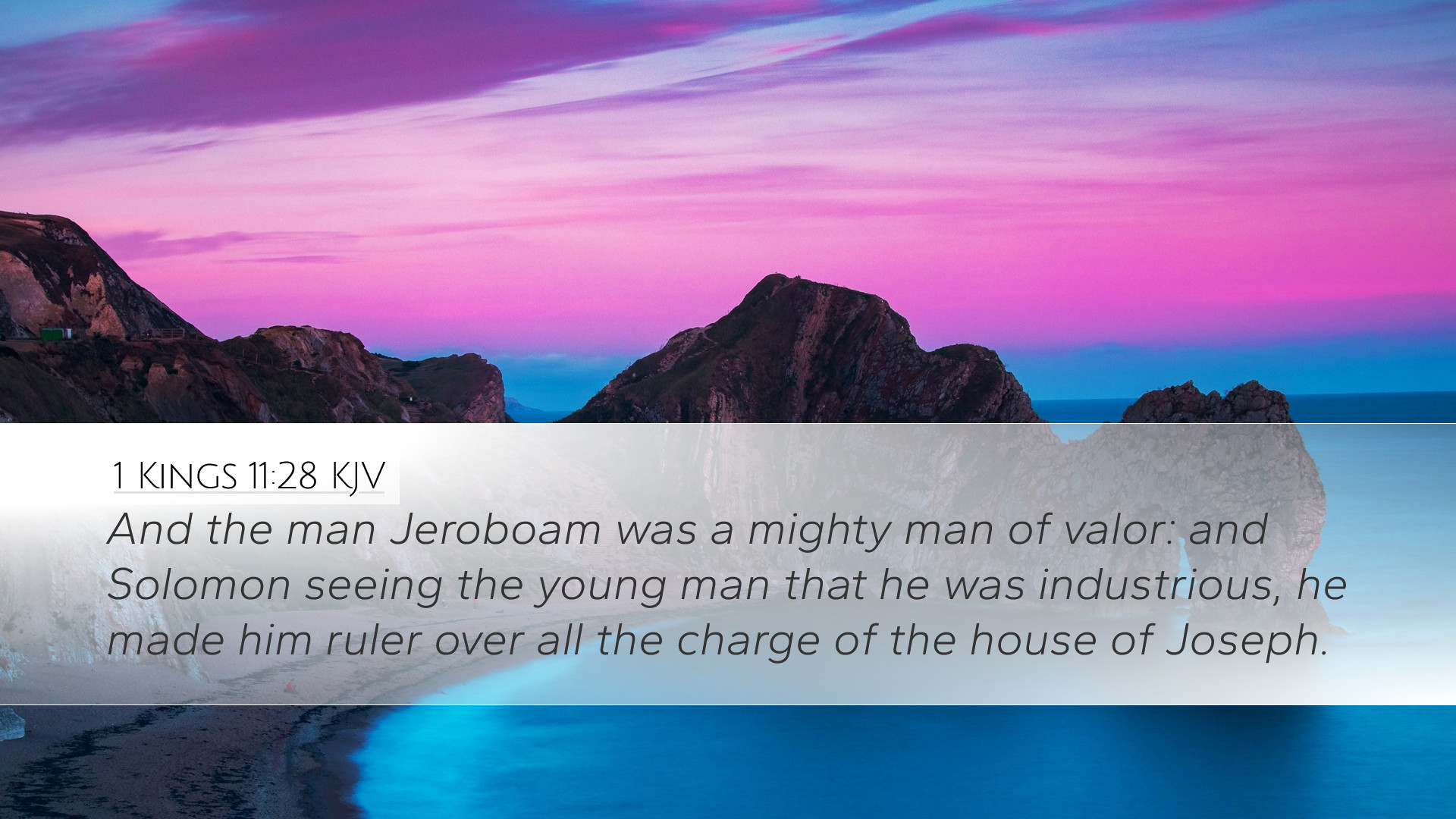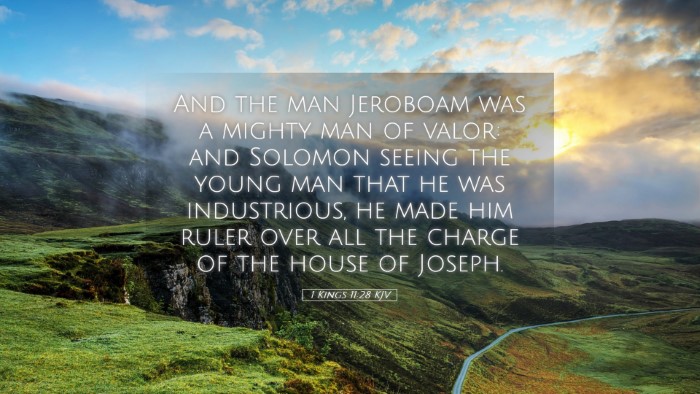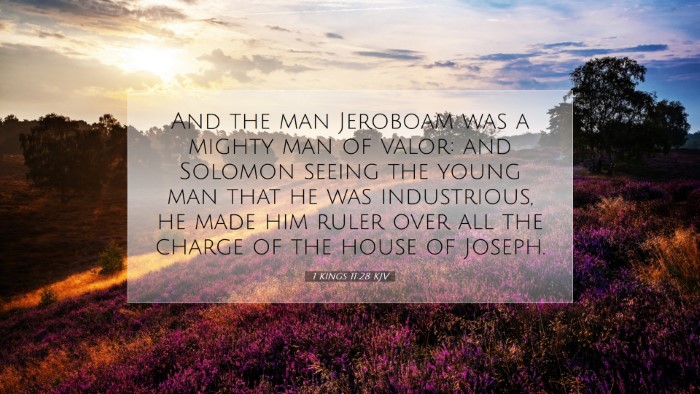Commentary on 1 Kings 11:28
Verse: "And the man Jeroboam was a mighty man of valour; and Solomon seeing the young man that he was industrious, he made him ruler over all the charge of the house of Joseph."
Introduction
The narrative surrounding Jeroboam's rise in 1 Kings 11:28 provides a significant turning point in the history of Israel. This verse highlights both Jeroboam's capabilities and Solomon's acknowledgment of those traits, which plays a critical role in the unfolding of the nation’s fate.
Character Analysis of Jeroboam
Mighty Man of Valour: The description of Jeroboam as a "mighty man of valour" suggests not only physical strength but also qualities of leadership and courage. Matthew Henry emphasizes that such a designation implies his intrinsic potential and skill in leadership roles. He was not merely a soldier but showed integrity, wisdom, and courage, commendable traits for any political leader.
Albert Barnes points out that Jeroboam's valor and industrious nature were evident, indicating that he possessed an administrative competence and a capacity for laborious tasks. These qualities made him stand out before King Solomon.
Solomon's Perception
Solomon's perception of Jeroboam is crucial. Industriousness: Here, the term "industrious" is significant, suggesting not only diligence but a proactive attitude towards responsibilities. Adam Clarke highlights that Solomon, a king known for his wisdom, saw potential in Jeroboam to be a capable leader for the house of Joseph, which included the tribes of Ephraim and Manasseh, central to Israel's identity.
Solomon’s choice reflects his political acumen, recognizing that deploying capable leaders was vital for the stability of his reign. This bears an important lesson for contemporary leaders in recognizing and nurturing potential in those around them.
The Role of the House of Joseph
The "house of Joseph" refers primarily to the tribes of Ephraim and Manasseh. As Adam Clarke notes, these tribes held significant influence in Israel, both politically and geographically. By appointing Jeroboam as a ruler over them, Solomon aimed to ensure loyalty from one of the most critical regions of his kingdom.
Leadership Dynamics: However, the irony lies in the fact that Jeroboam's appointment foreshadows the division of the kingdom. What was intended as a strategic decision would eventually lead to a rebellion. This emphasizes a recurring biblical theme: God can use flawed human decisions to fulfill His sovereign purposes.
The Theological Implications
Jeroboam’s ascent signifies not just a political maneuver but also God's providential hand at work. As Barnes highlights, despite Solomon’s wisdom, his failure to adhere to God's commandments set the stage for future conflicts. The narrative invites readers to reflect on the intersection of divine sovereignty and human agency. God's purpose was at play, even as Jeroboam's rise came from a king whose heart had strayed from God.
This passage serves as a warning against complacency in leadership. It urges spiritual vigilance in the face of success. Solomon's later downfall highlights that even the most astute leaders can falter when they disregard divine principles.
Lessons from 1 Kings 11:28
- Discernment in Leadership: Leaders must discern and recognize the potential within others. Solomon’s choice illuminates the importance of observing diligence and capability.
- Divine Providence: God's sovereignty operates behind human decisions. Despite human failings, God orchestrates events according to His eternal plans.
- The Importance of Obedience: Solomon's later unfaithfulness led to a division in Israel, stressing that obedience to God is crucial for lasting authority and peace.
- Legacy of Leadership: The qualities that earn leadership recognition should be coupled with a steadfast commitment to righteousness, reflecting not just on personal ambition but on collective wellbeing.
Conclusion
In summary, 1 Kings 11:28 introduces us to Jeroboam, laying a foundation for the coming narratives about leadership, divine sovereignty, and the consequences of turning away from God's statutes. The insights from public domain commentaries highlight essential themes of valor, industriousness, and the significant implications of Solomon's decisions within the broader context of Israel's history.
As pastors, students, and scholars engage with this text, it serves as a reminder not only of the complexity of leadership but also of the ever-present need for faithful adherence to God's will in all endeavors.


